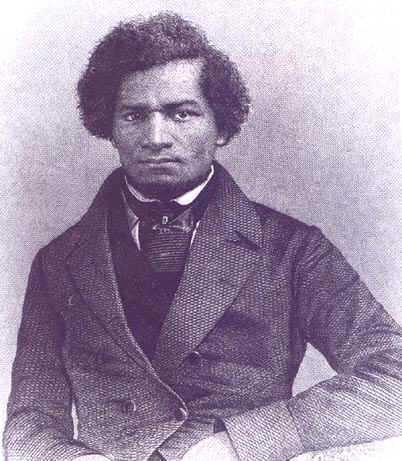Today's edition comes to us from deceased former slave and forever fighter of freedom- or as the common folk say, "freedom fighter"- Fredrick Douglass.
Most of us had the privilege of learning to read and write via school. Mr. Douglass had some help early on, but customs of the Antebellum South quickly turned his teacher into an inhibitor. True G's learn to read in silence like Brother Fredrick.
I've often been criticized due to my focus on studying history. Why am I living in the past, wasting time reading about ancient wars and brooding over slavery? History teaches us lessons about human nature, and what we are capable of. History is about reflection, which is necessary for anyone who considers perspective a virtue. So when I am studying history, there is always one eye on the present, trying to figure out how the lessons of yesterday apply to the conditions of today.
With that in mind, upon completion of the selected passage, I urge you to identify the parallels from his time to our time . (Obligatorily, I also urge you to publish your personal discoveries below in the comments section. You don't have to if you don't want to, but it would be nice if you did, nah mean?)
History is useless if not used as a tool for cognitive growth. Read, and expand your understanding...
Take it home my dear fellow:
-->
“To enslave men, successfully and
safely, it is necessary to have their minds occupied with thoughts and
aspirations short of the liberty of which they are deprived. A certain degree of attainable good must be
kept before them. These holidays serve the purpose of keeping the minds of the
slaves occupied with prospective pleasure, within the limits of slavery. The
young man can go wooing; the married man can visit his wife; the father and
mother can see their children; the industrious and money loving can make a few
dollars; the great wrestler can win laurels; the young people can meet, and
enjoy each other’s society; the drunken man can get plenty of whiskey; and the
religious man can hold prayer meetings, preach, pray, and exhort during the
holidays. Before the holidays, they become pleasures of memory, and they serve
to keep out thoughts and wishes of a more dangerous character. Were
slaveholders at once to abandon the practice of allowing their slaves these
liberties, periodically, and to keep them, the year round, closely confined to
the narrow circle of their homes, I doubt not that the south would blaze with
insurrections. These holidays are conductors or safety valves to carry off the
explosive elements inseparable from the human mind, when reduced to the
condition of slavery. But for these, the rigors of bondage would become too
severe for endurance, and the slave would be forced up to dangerous
desperation. Woe to the slaveholder when he undertakes to hinder or to prevent
the operation of these electric conductors. A succession of earthquakes would
be less destructive, than the insurrectionary fires which would be sure to
burst forth in different parts of the south, from such interference.
“Thus, the holidays, become part
and parcel of the gross fraud, wrongs and inhumanity of slavery. Ostensibly,
they are institutions of benevolence, designed to mitigate the rigors of slave
life, but, practically, they are a fraud, instituted by human selfishness, the
better to secure the ends of injustice and oppression. The slave’s happiness is
not the end sought, but, rather, the master’s safety. It is not from a generous
unconcern for the slave’s labor that this cessation from labor is allowed, but
from a prudent regard to the safety of the slave system.”
- passage taken from Frederick
Douglass’ “My Bondage and My Freedom”

No comments:
Post a Comment